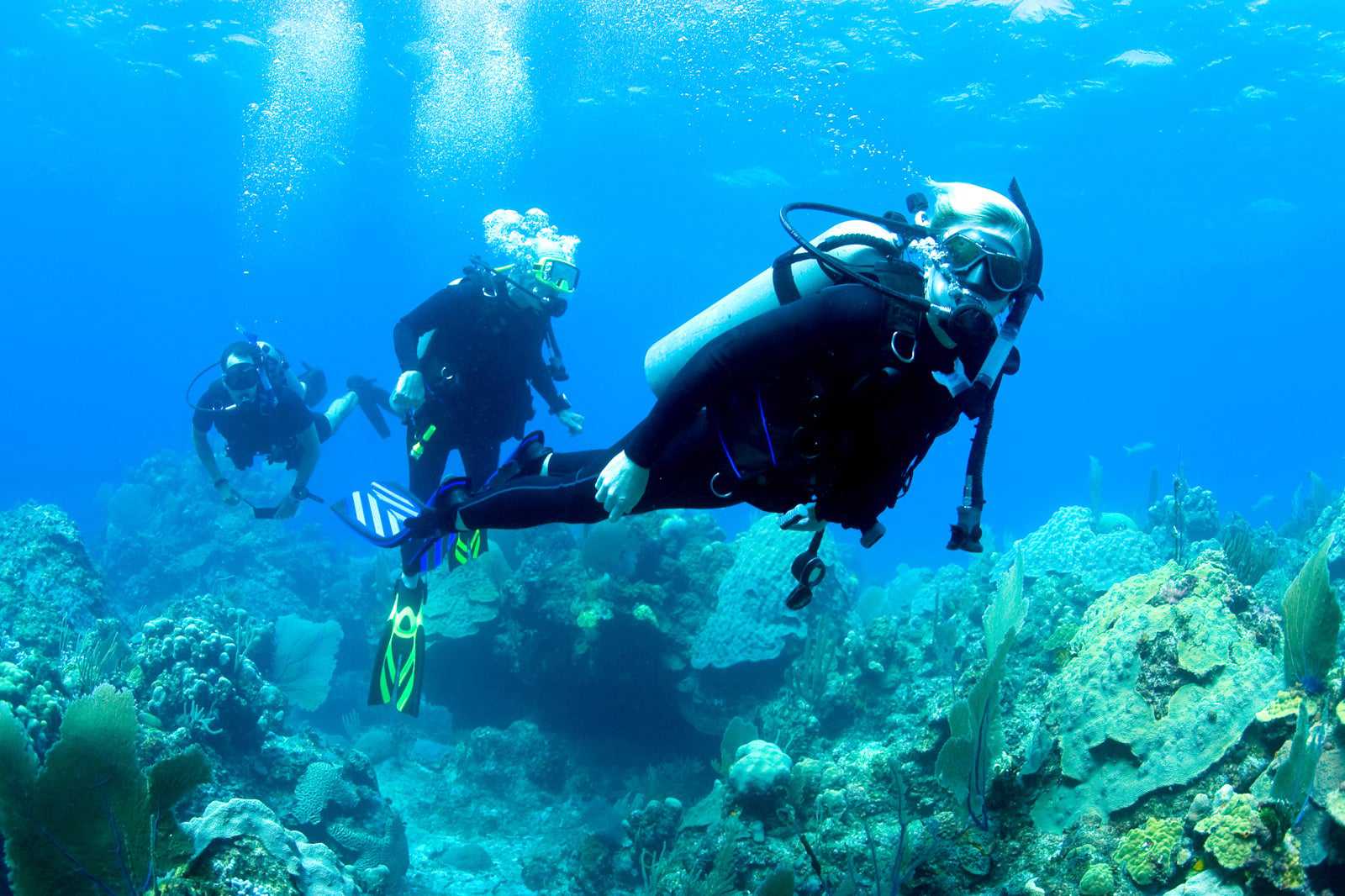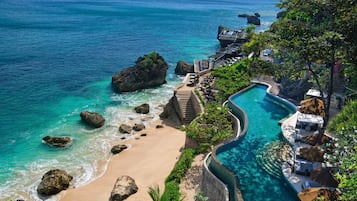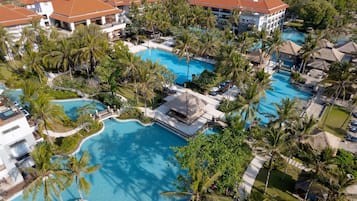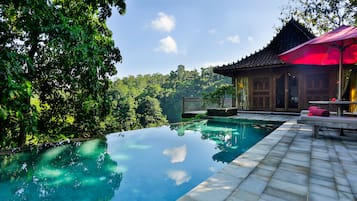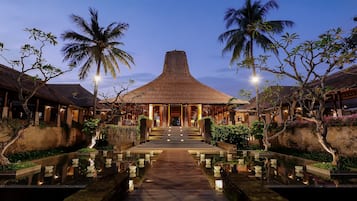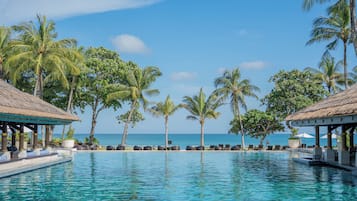The best dive sites in Bali are where you can explore the island's underwater beauty at its finest. These great spots each have something special to offer and there’s something for every skill level. Most of the island’s best sites have year-round visibility that’s fair to excellent, but the best time to go diving in Bali is in the drier months (April-November).
Highlights include shipwrecks with a bit of history to tell, artificial ‘biorock’ reefs, sunken gardens, statues and temples overgrown with sea fans and teeming with tropical fish. The best dive sites in Bali also let you encounter rare species. Large manta rays, elusive oceanic sunfish (or ‘mola-mola’), reef sharks, sea turtles and tiny pygmy seahorses are among them.
- 1
Tulamben
East Bali
- Mạo hiểm
Đọc thêmThe remote coastal village of Tulamben in East Bali makes up for its bleak overland terrain with splendid underwater beauty. The USAT Liberty shipwreck is its main attraction. Explore the genuine war wreck that's home to colourful corals and variety of tropical fish.
The waters around Tulamben feature a combination of muddy volcanic sea beds and natural reef walls. You'll sometimes see migrating mantas, sunfish, sea turtles and dolphins. Visibility is fairly clear all year round. It's great for intermediate to advanced levels, as well as casual snorkelling.
Bản đồẢnh của Andrepiazza (CC BY-SA 3.0) đã điều chỉnh
- 2
Amed
East Bali
- Mạo hiểm
Đọc thêmAmed Beach is a favourite dive site in East Bali that welcomes divers of all skill levels. A couple of hours from Kuta, it’s a convenient day trip destination. You can expect great visibility throughout the year. The most remarkable site in the area is Jemeluk Bay, where you can explore a submerged temple.
Dense gorgonian gardens and coral reef walls are found at depths of up to 8 metres. There are also 35-metre drop-offs, all reachable on short rides out on traditional wooden jukung outriggers. Sea turtles, barracuda, stingrays and parrotfish are among the common sightings.
Bản đồ - 3
Pemuteran
North Bali
- Mạo hiểm
Đọc thêmThis calm and scenic bay on Bali’s north-western coast draws the attention of the world’s diving community for being the largest ‘biorock’ reef site on the planet. This is thanks to a passionate project shared by local communities and businesses, overseen by the Karang Lestari Foundation.
You can dive under the calm waves of Pemuteran to enjoy good visibility throughout the year. Vivid coral reef nurseries have grown over magnificent purpose-sunk structures. Expansive underwater gardens serve as the bay’s centrepiece. The whole site continues to expand as structures are added over time.
Bản đồẢnh của Selamat Made (CC BY 2.0) đã điều chỉnh
- 4
Menjangan Island
North Bali
- Mạo hiểm
- Ảnh
Đọc thêmThe calm and pristine waters around Menjangan Island offer spectacular underwater beauty. Snorkelers and divers will instantly love its shallow reefs. You can access this protected nature reserve island by boat and go under the crystal-clear surface.
Deeper areas include several specific dive sites like the ‘temple wall’, with its colourful reef teeming with tropical cardinalfish. The ‘anchor wreck’ has barracudas and shy reef sharks around a wooden shipwreck. The ‘eel garden’, with its sandy bed, is home to colonies of garden eels dancing to the steady currents.
Bản đồ - 5
Nusa Penida
South Bali
- Mạo hiểm
Đọc thêmNusa Penida is the largest in the trio of islands that lie southeast of the Bali mainland, with waters that meet the open Indian Ocean. These happen to be on the midyear (August to October) migrating route of pelagic species. Penida is dotted with many dive sites where you can see them passing by.
Crystal Bay is one of the best sites. Experienced divers can navigate strong currents here in search of the famous oceanic sunfish. Another great site is Manta Point – no prizes for guessing what you can see here! There aren’t many dive resorts on Penida itself, but there are plenty on Lembongan Island nearby. You can arrange for dive trips with operators departing from the coasts of Sanur and Padang Bai on the mainland.
Bản đồẢnh của Ilse Reijs and Jan-Noud Hutten (CC BY 2.0) đã điều chỉnh
